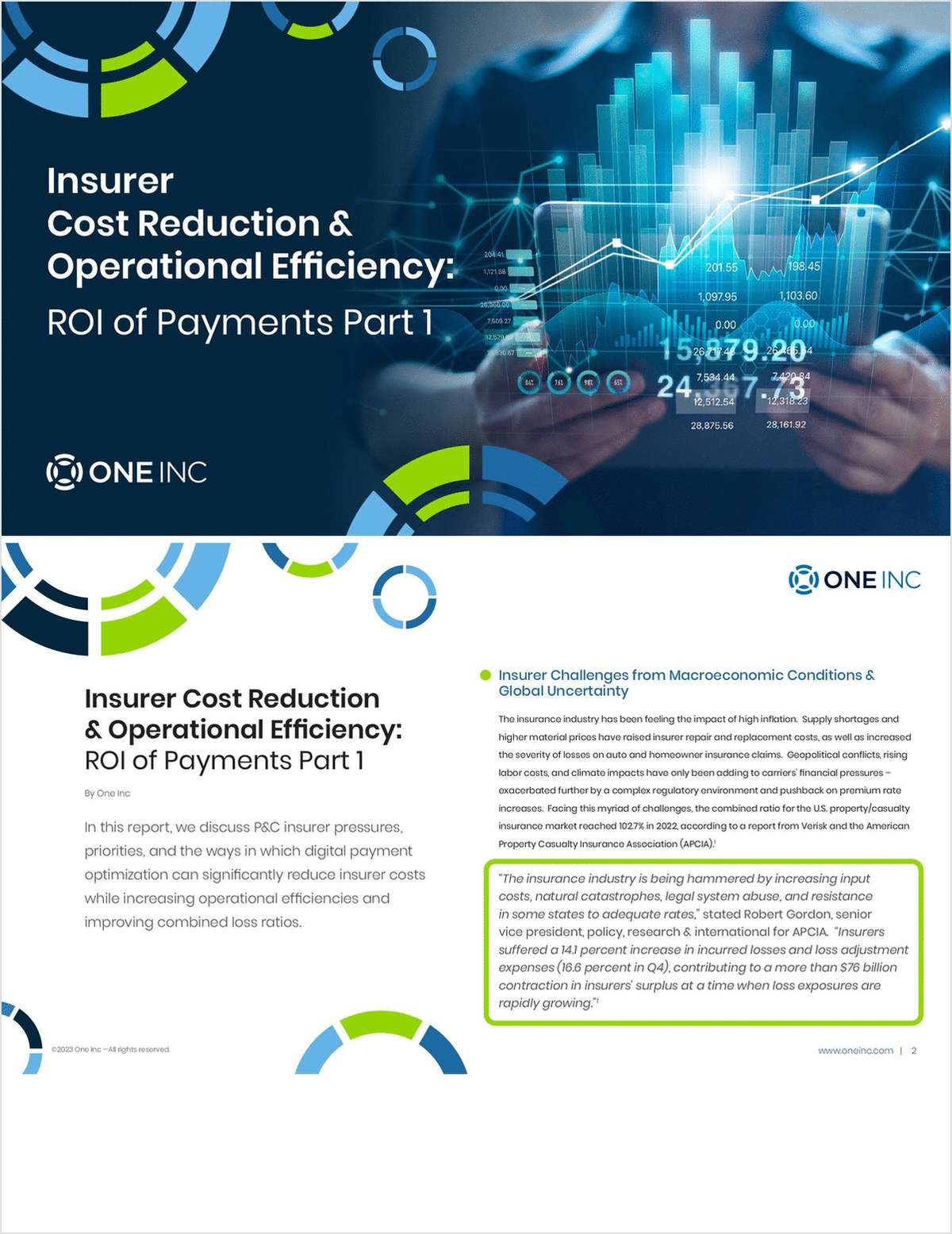A measure in Oregon that would have barred the use of credit scoring in determining insurance premium rates had a resounding defeat by voters on Tuesday.
Measure 42, defeated by a margin of 65 to 35 percent, would have barred all use of credit scoring by insurers in calculating premiums. Of the more than 1 million votes cast, 698,613 voted against it, while 373,135 supported it.
“[This] is a victory for Oregon consumers and, quite possibly, for consumers across the nation,” said Pat McCormick, spokesman for Oregonians Against Insurance Rate Increases. “Voters here sent a strong message of support for credit-based insurance scoring…They understood that if Measure 42 passed, consumers would lose the lower rates most now enjoy because they manage personal finances responsibly.”
Under current law, credit scoring is allowed only on initial applications and is prohibited in raising or dropping rates on existing customers.
The measure also was opposed by the American Insurance Association, The National Association of Mutual Insurance Companies and the Property Casualty Insurers Association of America.
“We enjoyed a very visible win,” said Gerald Whitburn, outgoing chair of PCI, during its annual meeting today in Seattle. “This was a big win for our industry and for our trade association.”
During a telephone news conference held today by PCI, Kenton Brine, Northwest regional manager for the association, said that while he was not surprised the measure was defeated, the margin of the defeat did come as a surprise.
He said the industry spent around $4 million to defeat the measure (Consumer Union put the figure at $5 million), but while spending was minimal by proponents, Consumer Union was a visible presence in strongly supporting adoption of the measure.
This was the first referendum anywhere on credit scoring, he said, noting that if insurers learned anything it was that they need not fear giving voters the facts about the subject.
“Insurers assumed, because this has not been tested with voters, that once voters learned the facts they would be very alarmed about the use of credit scoring. In fact, this shows that voters understand, once it is explained to them, what a benefit it has been to the majority of consumers and how it ties directly to their level of personal responsibility, and I think it rings true with voters. I think we've learned that we need not fear that voters won't understand the benefits of credit scoring.”
For its part, Consumer Union said it would continue to fight to protect Oregon's consumers.
In a statement, Consumer Union and the Oregon State Public Interest Research Group urged the state legislature to create a level playing field, saying that one in four reports contain serious errors.
Norma Garcia, senior staff attorney with Consumers Union, said the industry created confusion in the minds of voters.
“Credit scoring is unfair when it comes to insurance,” she said. “Many good drivers and responsible homeowners get stuck with higher premiums just because insurance companies think their credit score is not high enough. Even consumers with good credit can pay more than they should because of this unfair practice.”
Laura Etherton, OSPIRG consumer advocate, called the industry's campaign misleading and added, “The insurance industry recently revealed that its own polling showed that consumers generally supported the measure to ban the use of credit scoring, and this fueled their campaign to defeat Measure 42.”
Another state initiative opposed by the industry was South Dakota's Amendment E, which would have set up a special grand jury to investigate judges.
The measure, also known as the Judicial Accountability Initiative Law (JAIL) would have removed the immunity judges enjoy over their decisions. The measure would have established a 13-member grand jury with the power to indict judges over their decisions and have them tried by a special prosecutor.
The AIA and NAMIC joined others in opposition.
Amendment E went down in defeat by a margin of 89-to-11 percent, with more than 300,000 voting on the measure.
National Underwriter's Daniel Hays contributed to this story.
Want to continue reading?
Become a Free PropertyCasualty360 Digital Reader
Your access to unlimited PropertyCasualty360 content isn’t changing.
Once you are an ALM digital member, you’ll receive:
- Breaking insurance news and analysis, on-site and via our newsletters and custom alerts
- Weekly Insurance Speak podcast featuring exclusive interviews with industry leaders
- Educational webcasts, white papers, and ebooks from industry thought leaders
- Critical converage of the employee benefits and financial advisory markets on our other ALM sites, BenefitsPRO and ThinkAdvisor
Already have an account? Sign In Now
© 2024 ALM Global, LLC, All Rights Reserved. Request academic re-use from www.copyright.com. All other uses, submit a request to [email protected]. For more information visit Asset & Logo Licensing.








